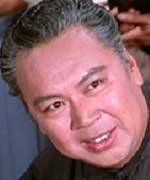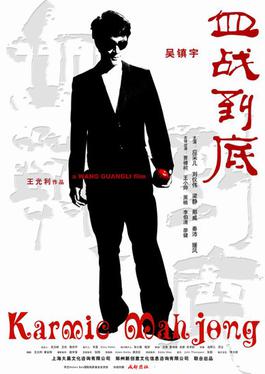The War of the Eight Princes, Rebellion of the Eight Kings, or Rebellion of the Eight Princes was a series of civil wars among kings/princes of the Chinese Jin dynasty from 291 to 306 AD. The key point of contention in these conflicts was the regency over the developmentally disabled Emperor Hui of Jin. The name of the conflict is derived from the biographies of the eight princes collected in Chapter 59 of the Book of Jin (Jinshu).
Emperor Hui of Jin, personal name Sima Zhong (司馬衷), courtesy name Zhengdu (正度), was the second emperor of the Jin dynasty (266–420). Emperor Hui was a developmentally disabled ruler, and throughout his reign, there was constant internecine fighting between regents, imperial princes, and his wife Empress Jia Nanfeng for the right to control him, causing great suffering for the people and greatly undermining the stability of the Western Jin dynasty, eventually leading to rebellions of the Five Barbarians that led to Jin's loss of northern and central China and the establishment of the competing Sixteen Kingdoms. He was briefly deposed by his granduncle Sima Lun, who usurped the throne himself, in 301, but later that year was restored to the throne and continued to be the emperor until 307, when he was poisoned, likely by the regent Sima Yue.

A City of Sadness is a 1989 Taiwanese historical drama directed by Hou Hsiao-hsien. It tells the story of a family embroiled in the "White Terror" that was wrought on the Taiwanese people by the Kuomintang government (KMT) after their arrival from mainland China in the late 1940s, during which thousands of Taiwanese and recent emigres from the Mainland were rounded up, shot, and/or sent to prison. The film was the first to deal openly with the KMT's authoritarian misdeeds after its 1945 takeover of Taiwan, which had been restored to China following Japan's defeat in World War II, and the first to depict the February 28 Incident of 1947, in which thousands of people were massacred by the KMT.

Lo Wei was a Hong Kong film director and film actor best known for launching the martial arts film careers of both Bruce Lee, in The Big Boss and Fist of Fury, and Jackie Chan, in New Fist of Fury.

Ma Yueliang or Ma Yueh-liang was a famous Manchu teacher of taijiquan. He was the senior disciple of Wu Chien-ch'uan, the founder of Wu-style taijiquan, and married Wu's daughter Wu Ying-hua in 1930.

Wu Yinghua (1907–1996) was a famous Chinese teacher of Wu-style t'ai chi ch'uan. She was born in Beijing and died in Shanghai. She was the eldest daughter of Wu Chien-ch'uan, the best known teacher of Wu-style t'ai chi ch'uan. Her older brothers were Wu Kung-i and Wu Kung-tsao.

Jeonju International Film Festival is an Asian film festival. It was launched in 2000 as a non-competitive film festival with partial competition. It introduces independent and experimental films to focus on the alternative course of contemporary film art.

Sylvia Chang is a Taiwanese actress, writer, singer, producer and director. In 1992, she was a member of the jury at the 42nd Berlin International Film Festival. In 2018, she was one of the jury members of the main competition section at the 75th Venice International Film Festival.

Karmic Mahjong is a 2006 Chinese comedy film directed by Wang Guangli. It stars Francis Ng as a mechanic from Chengdu plagued by bad luck and Cherrie Ying as a young woman who appears to share the same affliction. The film also features cameos by the prominent Chinese directors Wang Xiaoshuai and Jia Zhangke.
The 1st Asian Film Awards were given on 20 March 2007 at the Hong Kong Convention and Exhibition Centre, on the opening night of the 31st Hong Kong International Film Festival.

Three Kingdoms is a 2010 Chinese television series based on the events in the late Eastern Han dynasty and the Three Kingdoms period. The plot is adapted from the 14th century historical novel Romance of the Three Kingdoms and other stories about the Three Kingdoms period. Directed by Gao Xixi, the series had a budget of over 160 million RMB and took five years of pre-production work. Shooting of the series commenced in October 2008, and it was released in China in May 2010.

Yang Jia was a Chinese citizen executed for murdering six Shanghai police officers with a knife.
The different slow motion solo form training sequences of t'ai chi ch'uan are the best known manifestation of t'ai chi for the general public. In English, they are usually called the hand form or just the form; in Mandarin it is usually called ch'uan.

Sheng Zhimin is a Chinese filmmaker from Beijing. Unlike other directors to emerge in recent years, Sheng has had no formal training. He instead began his career as a line producer, screenwriter, and assistant director for other filmmakers like Jia Zhangke, Fruit Chan and Zhang Yang. In these positions, Sheng worked on the films Spicy Love Soup, Durian Durian, Public Toilet, and Platform.

The Story of Han Dynasty is a Chinese television series based on the events in the Chu–Han Contention, an interregnum between the fall of the Qin dynasty and the founding of the Han dynasty in Chinese history. The series was first broadcast on CCTV in China in 2003. Directed by Wei Handao, the series starred Hu Jun, Xiao Rongsheng, Jacklyn Wu, Kristy Yang, Wang Gang and Li Li-chun.
The 2010 Shanghai International Film Festival is the 13th such festival devoted to international cinema to be held in Shanghai, China. It was held from June 12–20, 2010.
The Pingyao International Film Festival (PYIFF), officially as "Pingyao Crouching Tiger Hidden Dragon International Film Festival", is a film festival held in Pingyao, Shanxi, China. It was launched in October 2017 by Jia Zhangke, a Chinese film director, screenwriter and leading figure of the "Sixth Generation" movement of Chinese cinema and prestigious festival director Marco Müller. The festival's goal is to bring attention to works done by young, lesser known directors in the Chinese film industry, as well as to encourage communication and cooperation between Chinese and international filmmakers.
V Love, formerly known as Love In The Micro Era·First Love is a 2014 Chinese television series directed by Liu Yuzhi and written by Chen Baohua, starring Gao Weiguang, Zhang Binbin, Zhang Yunlong, Dilraba Dilmurat, Xiao Yuyu, Li Xirui, Bian Yu, and Yang Chengcheng. It exclusively aired in Tencent Video as a web drama on 21 July 2014 until 11 September 2014 every Mondays-Fridays at 12:00.










